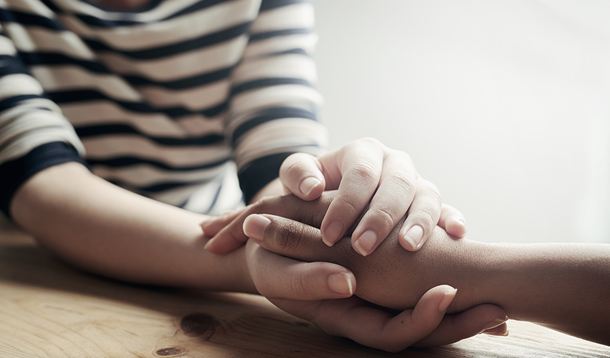
I remember sitting at my kitchen counter, slumped over, head on folded arms, in deep, deep emotional pain. It was if my brain and my rationale had been completely disabled, and I was feeling a profound sense of loss in a guttural, almost animalistic way. The sounds coming out of my mouth were not my sounds, the stillness of my body lying twisted and heavy was not my stillness. The tears falling from my eyes were not even my tears; it felt as though I was processing a loss so deep, it was coming purely from my soul, using my body as a vehicle for her grief.
This is what I remember of my miscarriage.
I remember feeling like I wasn’t entitled to that deep of a loss, because I had only been eight or so weeks pregnant. I remember feeling like it shouldn’t have really counted because I already had three thriving children, and who was I to mourn the loss of a baby that wasn’t. And I remember feeling absolute shock as I sat in the bathroom and lived out the loss, watching myself as if I were watching another person entirely, realizing what exactly she held in her hand, and what exactly she wouldn’t be holding in her arms in the next six and a half months.
And in case there was a chance that I forgot, my body bled, and bled, and continued to bleed for an entire year, as a pretty stark reminder of what had just happened.
Miscarriage is not uncommon; in fact, it’s so incredibly common that if you survey the women in your friendships, the women in your family, the women in your community, you will realize quickly that having a miscarriage is part of most people’s storylines.
What is less common however, is our willingness to talk about and share openly our experiences of loss. Is it shame that holds us back? A feeling that we did something wrong to warrant the loss of a pregnancy we thought was ours? A sense that “it could have been worse” so we keep it to ourselves? A misplaced perception that “it wasn’t even real yet” so we don’t have permission to experience the loss?
I don’t know, exactly. All I have is my own experience to go on, and what I took from it was that your pain is your pain. YOUR pain. It might make sense to you, it might not. It might be shared by another, it might not. I think that loss, of any kind and to any degree, can become an integrated part of your future, without necessarily dwelling on the loss itself. Rather, to take hurt, and the very powerful experiences behind that hurt, and treat it as scar tissue; a place that will always feel tender for you, and a place that you might need to take extra care of, and also one that remains a part of your story, but is not the main narrative.
And I think the path to this level of integration is found in talking, and sharing, and comforting, and above all, listening. If someone you know has experienced a miscarriage and has shared this with you, listen. You don’t need to solve, you don’t need to console, you don’t need to understand or start the questions of “will you try again?” All you need to do is listen, and by doing so, acknowledge that that pain is unique and real, and that you will continue to sit and listen whenever, however, wherever, as long as is needed to treat the scar tissue and move forward.